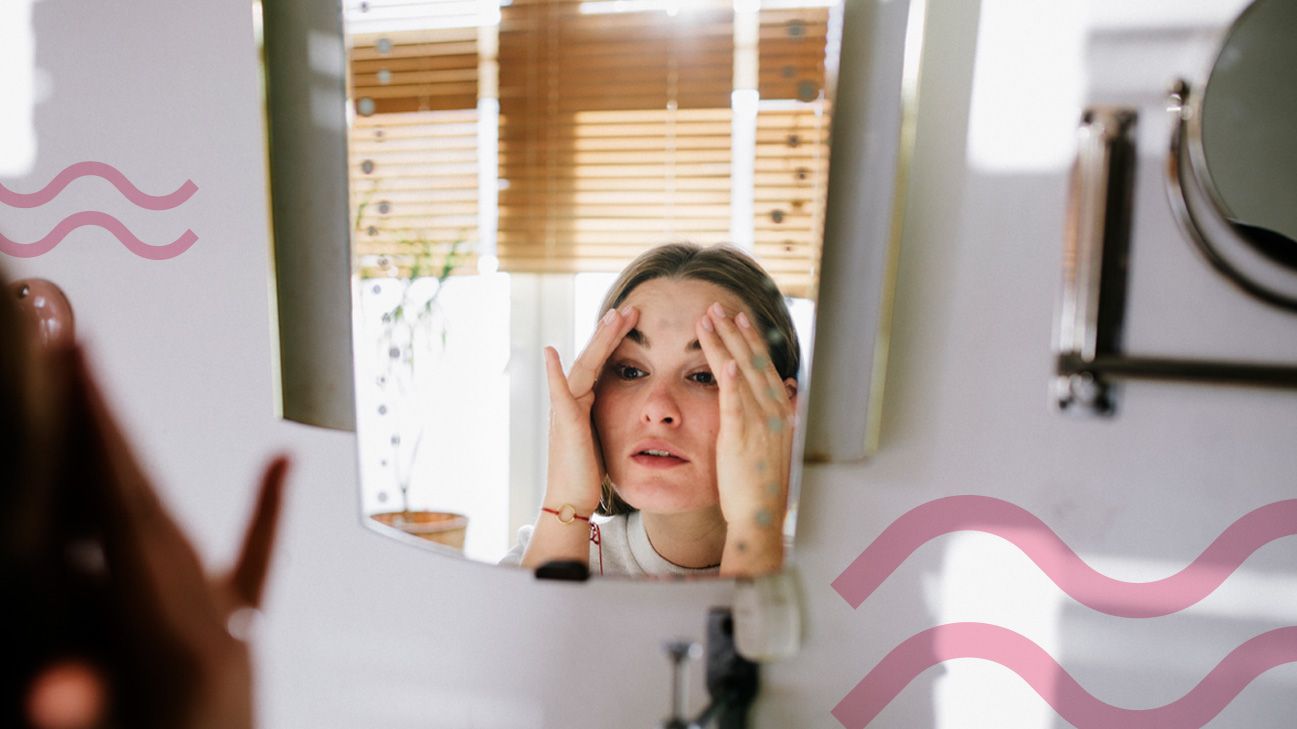What to Know About Eyelashes, Eyebrows, and Chemotherapy
July 28, 2023
Content created for the Bezzy community and sponsored by our partners. Learn More

Photography by Willie B. Thomas/Getty Images
Hair loss is common during chemotherapy and can affect your scalp, body, and facial hair. Losing hair can be upsetting, but knowing what to expect can help you feel more prepared.
Losing your eyelashes or eyebrows due to chemotherapy treatment can be startling and upsetting.
Hair loss is a common side effect of many types of chemotherapy. Though you may associate the loss with a bald head, the reality is you have hair all over your body, and any of it can fall out due to the treatment.
Fortunately, if hair loss from chemotherapy affects your eyebrows or eyelashes, there are some steps you can take to manage the loss. It will also likely grow back following treatment.


How many people lose their eyebrows or eyelashes due to chemo?
A reality of chemotherapy is that it causes hair loss to some degree in the vast majority of people. Some studies report incident rates as high as 99.9%.
You may lose some of your eyebrows, giving them a thinned appearance, or you may lose both brows entirely.
Losing body hair can be upsetting, especially if you didn’t expect it to happen.
How long after chemotherapy do eyebrows or lashes fall out?
If you lose your eyebrows or eyelashes, you’ll probably start to notice hair loss within 2–3 weeks of starting treatment. Your eyebrows may appear thin, or they may fall out altogether.
Most people notice their scalp hair starts to fall out first. This is then followed by other areas, such as the eyebrows or lashes.
Why does chemotherapy cause hair loss?
You may not be able to prevent hair loss, including eyebrows or eyelashes, during chemotherapy. Chemotherapy drugs target rapidly growing cells to limit the growth of cancerous cells. The medications can cause damage to hair follicles which leads to hair loss.
However, everyone’s body is different, and your body may respond differently to chemotherapy than others.
Also, not all chemotherapy medications cause hair loss as a side effect. You may want to ask a doctor about your options in case you’re a good candidate for medications that aren’t known for causing hair loss as a side effect.
How can I prevent or manage eyebrow and eyelash loss during chemotherapy?
Whether your eyebrows or eyelashes become thinner or vanish, you can take steps to manage the loss.
Eyebrows
To manage eyebrow thinning, you may choose to apply eyebrow makeup that matches your hair color.
To do this, you can:
- Hold your eyebrow pencil vertically and against your nostril in line with the inner corner of your eye. Make a mark above the eye where the eyebrow will start.
- Next, keep the end of the pencil against the nostril, move the point in line with the center of your pupil, and make another mark. This will be where the arch of the brow will be.
- Line up the pencil with the outer corner of your eye and make a final mark where the eyebrow will end.
- Use your chosen eyebrow makeup to connect the dots and create the eyebrow with little hair-like strokes.
There are a variety of products you can use to create an eyebrow, such as stencils. If you have trouble drawing or creating one, you may be able to have a makeup artist at a local store show you tips on how to apply the eyebrow.
Some people also choose to apply stick-on eyebrows.
Eyelashes
You may choose to use eyeliner to create the illusion of having eyelashes. You can match the color and draw along the top of the eyelid.
Your eyelashes also play a role in protecting your eyes. You may find that if they fall out, your eyes become irritated more easily. To manage this, you can try using gentle eye drops.
False eyelashes are another option. Similar to stick-on eyebrows, fake lashes attach to the skin with an adhesive. If you have sensitive skin, these may not be a good option for you.
There are also prescription topical medications like Latisse which can help support eyelash growth.
When will my eyelashes or eyebrows grow back?
The good news is that your eyelashes or eyebrows will typically start to grow back following treatment.
According to a 2019 study looking at people who underwent chemotherapy for breast cancer, scalp hair regrowth started to occur within 3.3 months. They found that more than 96% of people had at least 70% regrowth of their scalp hair.
Experts note that you should start to see hair regrowth starting within 6–8 weeks following your treatment.
Though you may be tempted to try supplements to help aid hair regrowth, you should consider speaking with a doctor before starting anything new. Your doctor will be able to let you know if these supplements may interact negatively with the medications you’re taking.
The takeaway
As you undergo chemotherapy, you may experience partial or full hair loss. While some people only experience hair loss on their scalp, it can also affect your eyebrows and eyelashes.
While hair may seem like a small issue when you’re undergoing so many changes, hair loss can be upsetting. Remember that any emotions you experience are valid.
Medically reviewed on July 28, 2023
5 Sources


Like the story? React, bookmark, or share below:
Have thoughts or suggestions about this article? Email us at article-feedback@bezzy.com.
About the author